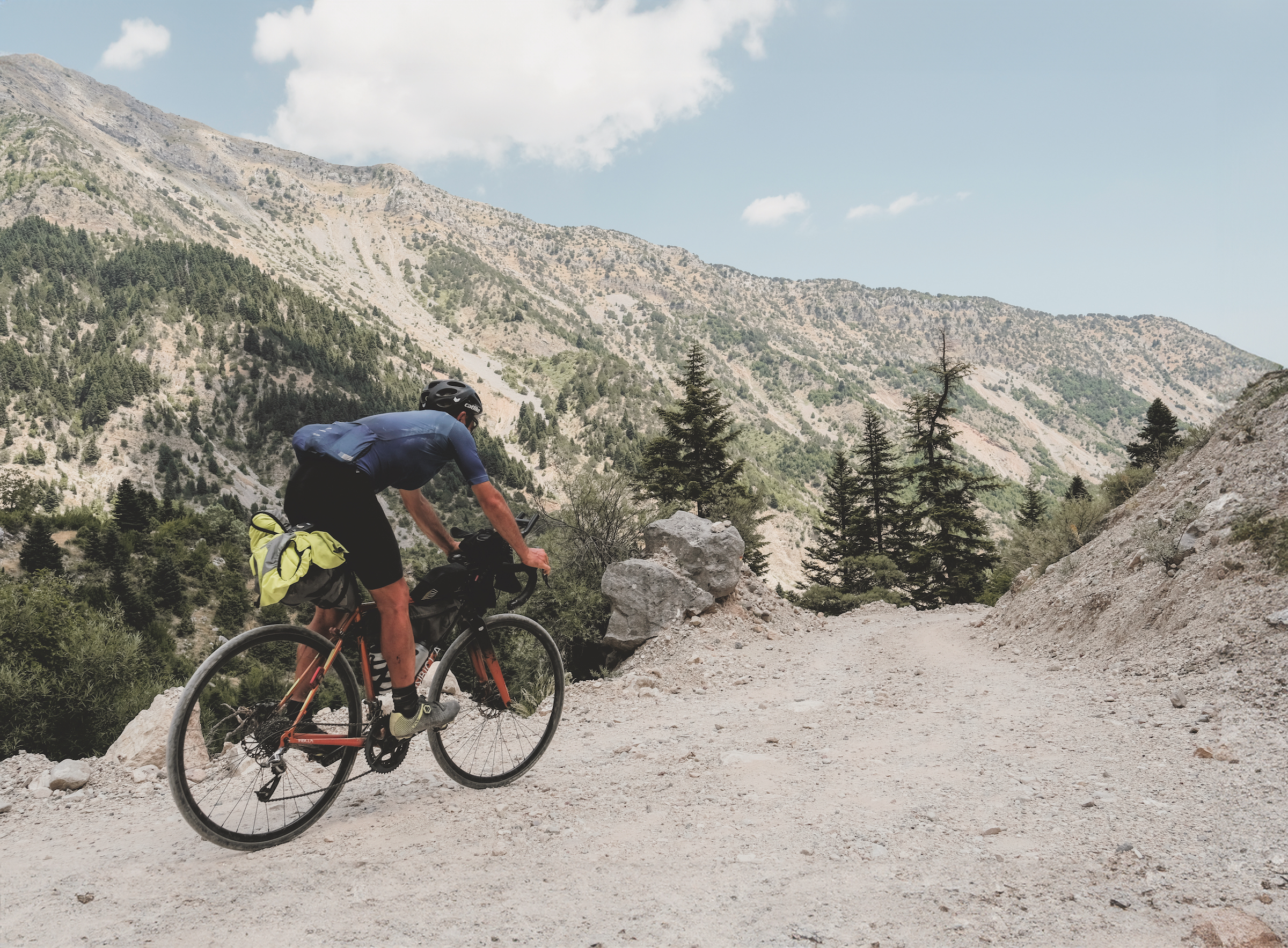
With only a handful of hours left to ride of what had been an epic journey across Europe, Christoph Strasser was almost able to see victory in the 2023 Transcontinental Race up ahead. After thousands of kilometres toiling through Europe, he was so close. And yet it wasn't that simple. It was pitch dark, the batteries in his lights had run down and he had a puncture to try to fix.
To cap it all, he already had lost his all-important GPS tracker, issued to all competitors. He may have been within shouting distance of the chequered flag but at that point, having stumbled around in woodland for nearly an hour looking for the offending item, victory seemed a long way off indeed.
With nearly 4,000 kilometres (2,485 miles), 40,000 vertical metres and 350 riders all behind him, the 41-year-old Austrian ultra-distance star was beginning to feel the Transcontinental Race bubble in which he had existed for the past eight days was in serious danger of bursting.
Inaugural event: August 2, 2013
Entry fee: £440
Distance: 3,200-4,200km (2,000-2,500 miles)
Elevation: 30,000-45,000m
Entrants 2013: 30
Finishers 2013: 20
Entrants 2023: 355
Finishers 2023: 171
Daily km to finish within time limit: 250-280
Daily km to win overall: 400-450
The event had broadly gone to plan up to that point, but the final 150 kilometres were nothing short of disastrous. "They were a catastrophe really,” he says. “I had a little crash on a gravel section and lost my tracker… Looking for it in the middle of the night, I was walking in the woods for an hour. Then I had to fix a flat tyre without lights.” Strasser had been dreading the off-road sections, and now his worst fears were being borne out.
Nearing the finish line in the Greek port city of Thessaloniki, he assumed the hardships were behind him. Not a bit of it. "There were 20% steep ups and downs," he says. "So I was in the historic centre of the city and I was walking and pushing the bike because it was too steep to ride. When I reached the finish, I was really a little bit annoyed," he admits with a rueful smile.
Annoyed or otherwise, Strasser did indeed reach the finish in first place, coming home in eight days, 16 hours and 30 minutes in what was the ninth edition of what has, over the past decade, become a key appointment on the bikepacking calendar.
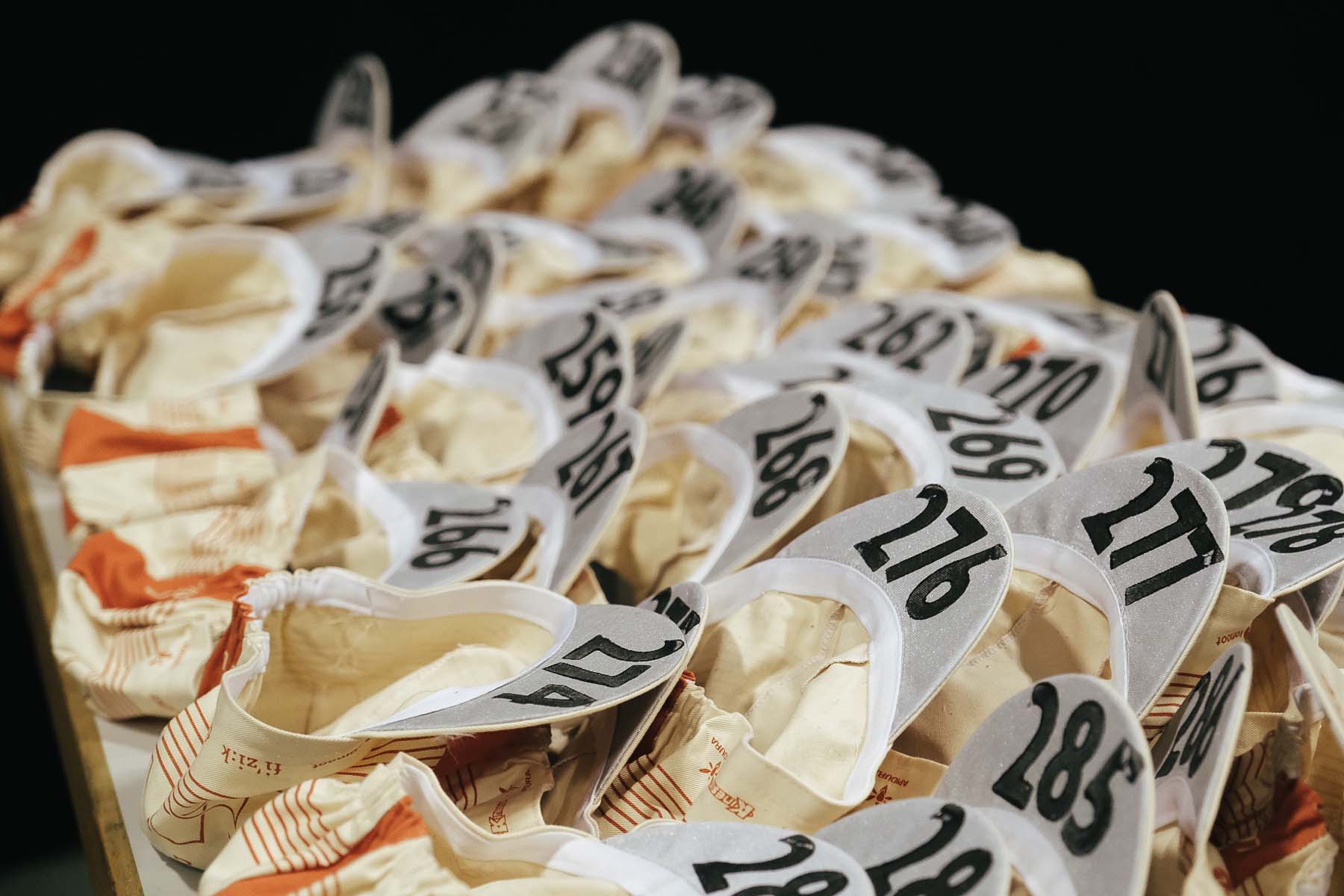
How it all began
The Transcontinental Race (TCR for short) was conceived by Yorkshireman Mike Hall and first held in 2013, when it ran from London to Istanbul. A mountain biker turned ultra-distance rider, Hall was an instrumental figure in what was still a curious corner of the sport – not yet filling the just-left-of-mainstream niche it now occupies.
As well as inspiring others, Hall was a talented competitor, winning major events such as the Tour Divide and the Trans Am Bike Race in the USA, and setting a new round-the-world record in 2012 when he won the inaugural World Cycle Race. Tragically, Hall was killed, aged 35, during the Indian Pacific Wheel Race in 2017, but he left the ultra-distance world with a great and enduring gift in the TCR.
One key feature of the event is that the start and finish changes from year to year – though it almost always runs from north-west Europe to south-west, just like that very first edition. Only once has it headed in the opposite direction – in 2019, it began in Burgas, Bulgaria, and finished in the French port of Brest on Brittany's far western tip.
Of all the starts and finishes, Geraardsbergen in Flandrian Belgium has proved the most popular, with six editions starting there, including the 2023 edition won by Strasser. It's a town with a longstanding and illustrious cycling connection, featuring on the route of Classics races including the Tour of Flanders. For this year's landmark 10th edition of the TCR, the start moves to another cycling location for an inaugural start at Roubaix, from where competitors will head to Istanbul for the first time since 2015.
The spirit of TCR
The TCR has a spirit and a soul all of its own, thanks in large part to having grown up as a maverick event, not governed by umbrella organisations like the UCI. Just like the event itself, even the results are non-conformist; in 2019 for example, it was won overall by a woman, Fiona Kolbinger of Germany, who beat second-placed Ben Davies by more than 10 hours on the east-west traverse from Burgas to Brest.
In the TCR, riders are completely self-supported. They find – or carry – their own accommodation, and they even devise their own routes, and it is down to the individual to find their own way from start to finish. There are just a few exceptions to the self-navigation rule, which come in the form of several 'parcours' dotted along the way. These are sections that the riders must tackle in full and generally pass through a checkpoint along the way, or nearby.
For many – perhaps most – the TCR is more about simply taking part than attempting to win, but there is a certain amount of time pressure. There is a cut-off, which usually comes after around two weeks and necessitates riding 250km or more each day in order to duck inside it. Riders who successfully do this are given a coveted 'General Classification' finishing place. Those who don't are still classed as finishers – but they may not find anyone waiting for them at the end of the event.
While the event is tackled mostly on the roads, it's common for the parcours to feature off-road sections – something that even a rider of Strasser's calibre is not wholly comfortable with. Like most contenders for the top places, Strasser's steed of choice was very much geared towards efficiency on the blacktop rather than tackling gnarly trails – he was riding a Specialized Roubaix with 28mm Specialized Roubaix tyres. "I'm not an off-road guy," he says. "But there are gravel sections – very frustrating at times but everybody has to do it."
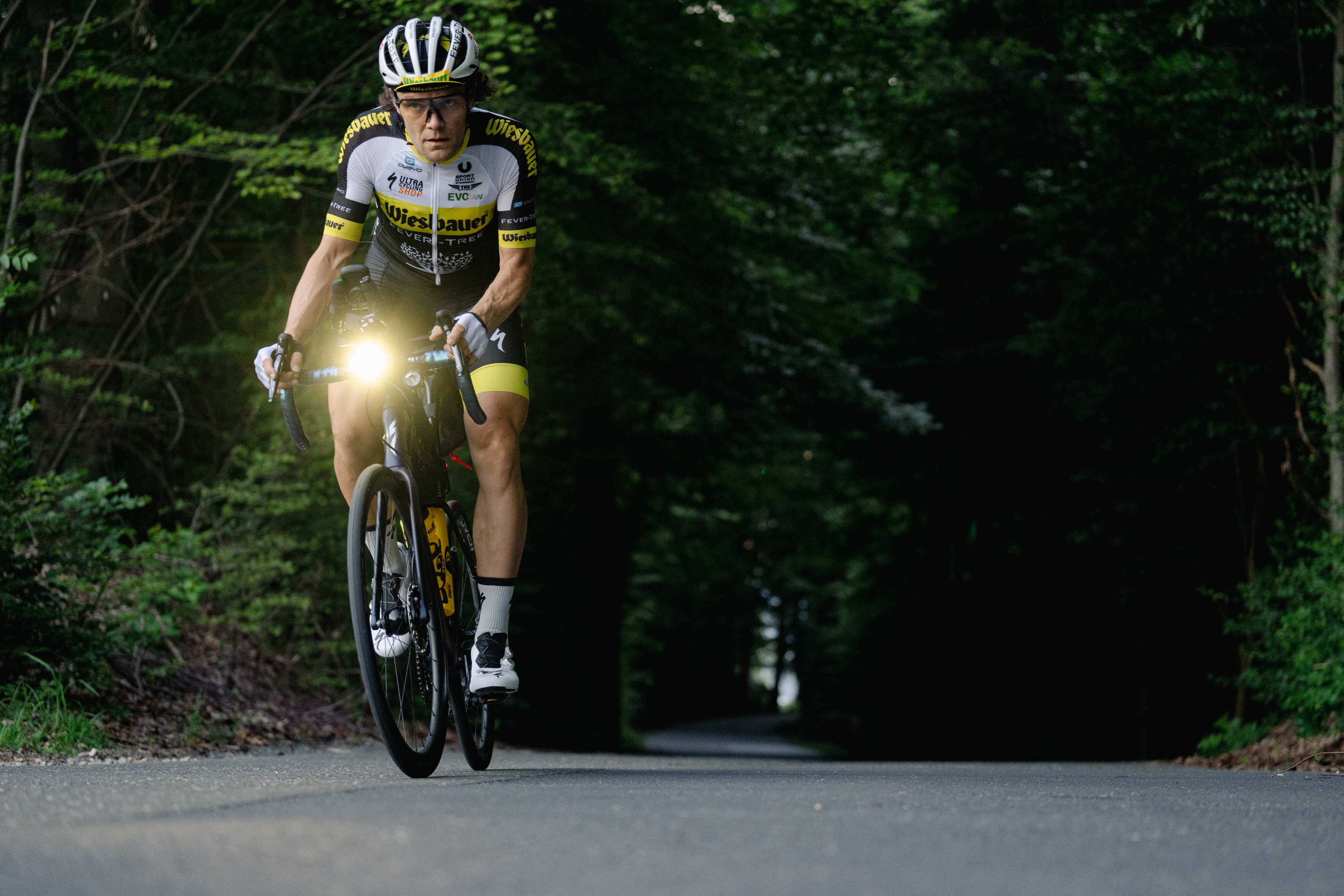
Bye bye shuteye
The other major obstacle flung at any rider hoping for a high finish in TCR is coping with a lack of sleep. When you're averaging 400km (248 miles) on a daily basis, sleep comes at a premium. Strasser managed around three hours a night. He also learned from his winning ride the previous year and opted to sleep in a guest house every night, as opposed to camping. "It's not as romantic and adventurous, but it's more efficient," he said. "You have a better recovery.”
Unlike in a road race or a time trial, ultra-distance racing – where simply keeping going is the name of the game – affords competitors the chance to admire their surroundings. Strasser says he never let the beauty of the undertaking pass him by, despite his focus on winning, and he was regularly surprised by the places he found himself in. “In the middle part of the race, especially in the Balkans, you will not find a lot of information,” says Strasser, “so it's really exciting when you ride through a place like Montenegro and Albania. They were the most scenic and beautiful parts of the race. Albania is so lovely. I think most of the racers felt the same."
In tribute to those beautiful and untouched surroundings, organiser Lost Dot appears keen to encourage riders to act ecologically responsibly, and last year introduced the Green Leaderboard. This was a separate classification for riders who opted not to fly to the start or from the finish. Won overall last year by Tim De Witte of Belgium (who also placed third overall), with Germany's Marie Moldenhauer first woman, the Green Leaderboard doesn't offer prizes to its top finishers, but there are small grants available for those who may not be able to afford the extra expense of combined buses, trains and even hotels.
Will Strasser, as reigning champion, return to defend his title and possibly record his TCR hat-trick? "The TCR is completely different every year – it's really a new challenge every time. That's one of the things I really like,” he says. “One of the things I do not like, honestly, is the off-road. If they increase that further, maybe I will not do it any more. But let's see."
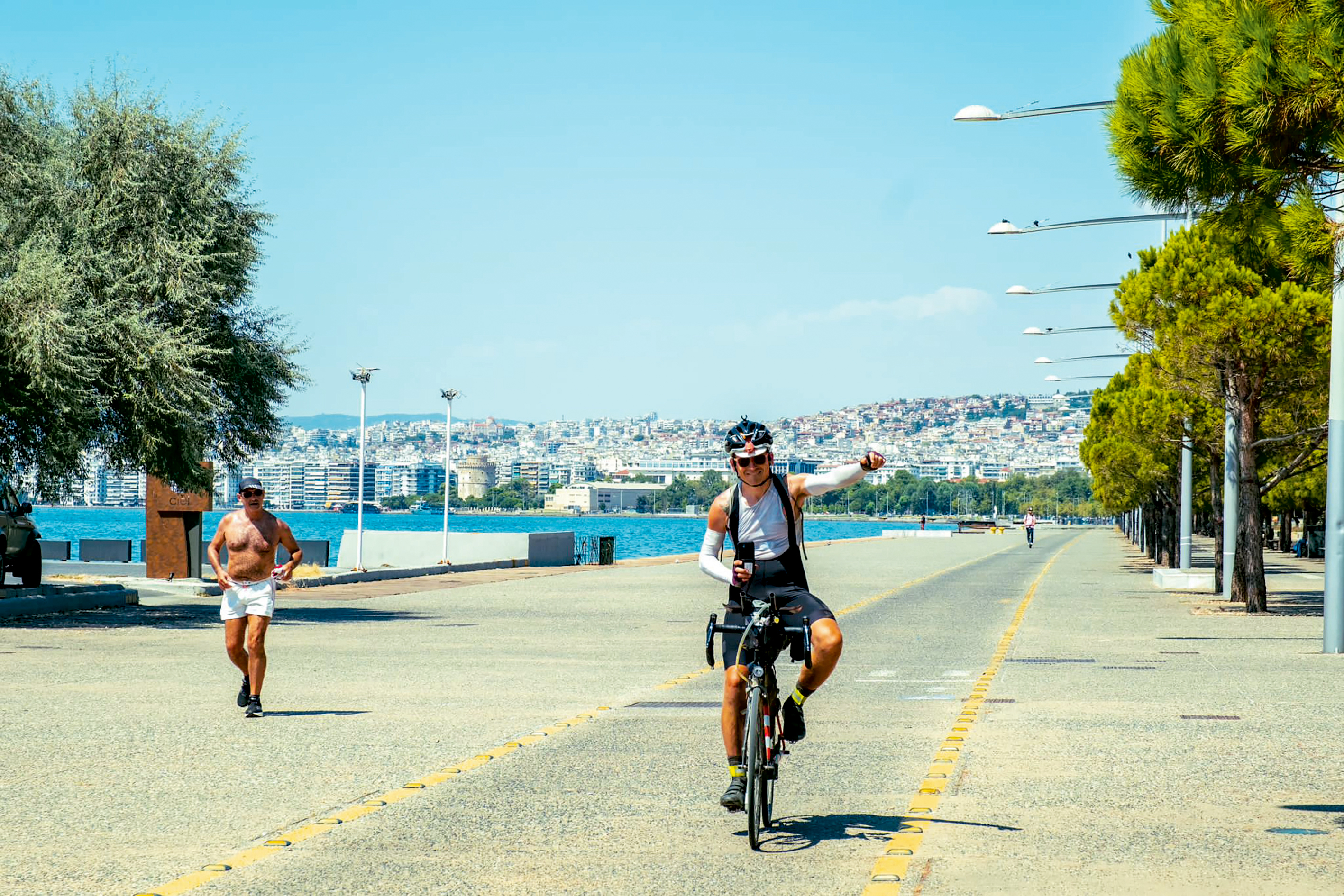
View from the mid-pack
London-based Mark Kowalski was on a career break when he took up long-distance cycling eight years ago, diving in at the deep end with a three-month, 9,000km ride across his native Canada. Back in the UK he began entering events, from one-day Audax rides to the 1,200km Paris-Brest-Paris.
Finally, after completing the 1,400km London-Edinburgh-London in 2022, a friend convinced him to enter the Transcontinental Race, mollifying his hesitance by pointing out he might not get in anyway. Needless to say, he did.
"That was quite the day," Kowalski says. "It was shortly after Christmas, getting this email. It all became very real at that point."
Going into the ride, the big target, he says, was simply to finish – caveated with the added pressure of his parents being there at the finish over a relatively compact four-day period before having to depart. "I'd agreed with myself, if I'm going to miss that window, I'll just get on a bus or train and just stop because I want to see my parents," says Kowalski. "They live in Canada, so it's such a rare treat to have them there."
During the event he was visited by good and bad fortune in fairly equal measure. A first puncture, deep in the Albanian mountains, found him with a faulty pump and a wasted CO2 canister – ("I just screamed at the side of the mountain") – was only the beginning of his tyre / pump issues. By the time he reached Greece his tyres featured significant duct-tape accoutrements and he was on his third pump.
More fortuitous was his decision to hike-a-bike through a rough and tumble hiking track around the Stelvio pass, rather than attempt the 2,000m climb, which helped him leapfrog from around 75th to 39th. He also experienced the whole spectrum of emotion – all in one go on one occasion: "Coming up to Mount Olympus was quite a moment… I was just bawling and laughing at the same time, like, 'what is going on?'." he says.
Unlike with Christoph Strasser, it all came together on the run-in to the finish, and Kowalski ended on a high. "I was like, I'm good to go… my bike is working, I'm on cloud nine right now, nothing's gonna stop me from getting to the end. And I managed to come back to 32nd place after all that. It was absolutely a dream come true." And his parents? He beat them there by a day.
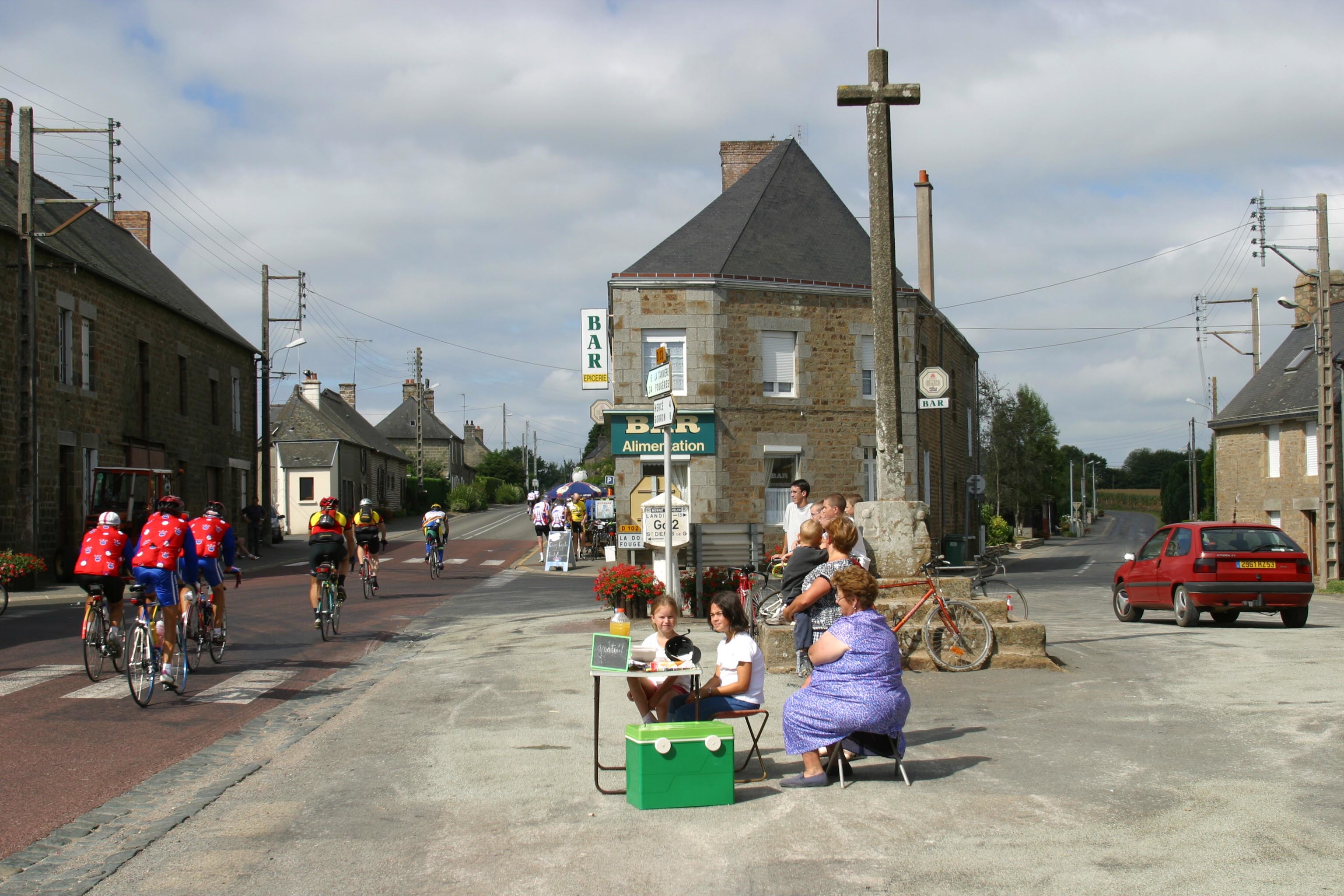
A world of ultra-distance riding
If you're that way inclined and have enough spare cash, there are plenty more ultra-distance events to choose from.
GB Duro
2,000km
This year's GB Duro runs from Land's End to Cape Wrath in North-West Scotland in a single 2,000km gravel stage. There are no prizes for winning but no cut-off either.
Paris-Brest-Paris
1,200km
The granddaddy of them all, 'PBP' began life as a road race in the 1890s, but for the past 70 years or so has been run as a non-competitive Audax event.
Silk Road Mountain Race
1,938km
Run off in a single-stage like GBDuro but in the far less compromising terrain of the mountains of Kyrgyzstan. Features singletrack, double track and old Soviet roads. No winner's prizes.
Indian Pacific Wheel Ride
5,500km
One of the longest rides on the calendar, the IPWR runs west to east across Australia, unsupported and untimed. It is the unofficial successor of the Indian Pacific Wheel Race, which was cancelled in 2017 after the death of ultra-distance luminary Mike Hall during the event.
All Points North
1,000km+
An ultra-distance event with a difference. Starting and finishing in the same place – Sheffield – riders tick off 10 control points spread throughout northern England, in any order they choose.
Liège-Paris-Liège
1,000km
Conceived as a tribute to the Liège-Bastogne-Liège WorldTour race, LPL is similar to TCR in that it's unsupported and features several mandatory parcours and a free choice of route in-between. Cut-off is 87 hours.







